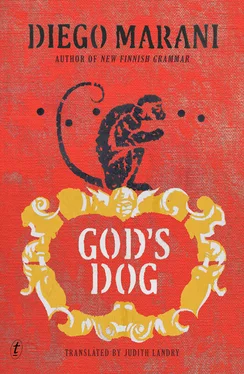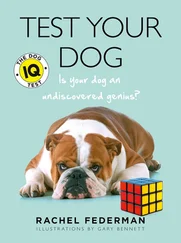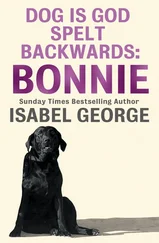‘If God leads me to make discoveries which put my faith in doubt, it is because He wants to point me down another road to come to Him. Religion is like science. Without free and open debate, it withers and dies, leaving the road open to atheism. It is rational proof that thwarts attempts at undermining faith. The greatest discovery that science constantly presents us with is our own ignorance, and that is why the believer should have no fear of it. Today neither Christianity nor Islam can provide answers to mankind’s problems. Christ and Mohammed are but remote memories: it is so long since God sent us a sign. We are like a vessel wandering through space which has lost all contact with its base. If for thousands of years man has been getting no nearer to God, it must be because we have taken a wrong path. Science may help us find the right one.’
12 May
I sense that Guntur wants to tell me something, but he can’t quite bring himself to do so. Perhaps he does not trust me, and this upsets me. Today he told me what he is working on at the university, namely, mirror neurons. Apparently he knew Neil Corrigan; he has read all his books. He cannot know that I was responsible for the suicide of his colleague at Imperial College. But Guntur is a scientist of another kind.
14 May
Guntur has gone to Zeeland for a few days, for a conference. He left only yesterday, but we have been e-mailing each other constantly: in the form of letters, which is what we like to do. I tell him about what I have been reading, about my various battle plans; he sends me little drawings of conference life, a sort of real time chronicle of his day, meetings with old windbags and a visit to the dike on the Scheldt. I feel as if I am there with him. I didn’t know about the old wool trade between Holland and Scotland which he mentions. I should really travel a bit more: I have been in Holland for years, but I have never been to Zeeland, nor to Friesland.
18 May
Today Guntur and I took the ferry to Enkhuizen and went for a trip on the Markermeer. It was a gloriously sunny day, the kind you don’t often get in this part of the world. Along the coast we saw fields of tulips and old windmills, just like in a Dutch landscape! On the boat there were fishing-rods for hire, and you could buy live bait. So we started to fish, without catching anything, of course. Even the little boys beside us were reeling in one herring after another, whereas all we did was lose our bait. But Guntur seemed to enjoy it enormously, laughing amidst the spray, and smiling that disarming smile of his which makes everything seem like a small miracle. At times, when I’m alone, I too try to be amazed by little things, I try to wonder at the clouds, driven by the wind, at a flower closing its petals as evening approaches, at the fire burning in the fireplace. But I never succeed; all I do is get bored. Clearly, I am not the meditative type!
On the beach at Enkhuizen we ate poffertjes in a bar that was raised on piles. Everything in it smelled of fried food, even the gardenias on the windowsills. For some reason, it was full of English, the kind who wear trainers and baseball caps; they walked as though they were drunk, dazed by too much sun. The dunes were covered with such rich, green vegetation that the effect was almost Mediterranean. At a certain point a group of horsemen came galloping across the beach. Guntur rushed up to them to have a closer look. He said he remembered horses from his early childhood, galloping along beaches just like this. Then his mood darkened.
‘Have you ever been back to Banda Aceh?’ I asked him.
‘No, never.’
‘Would you like to?’
‘No. I’m afraid.’
‘What of?’
‘Of meeting someone who knows me. Of knowing. Perhaps they are still there…’
‘Who?’
‘Father and mother.’
I would have liked to ask him to tell me more, to find out something about his childhood. But then my own fear of remembering flooded back into my mind. It’s like a safety valve which kicks in whenever I start to delve into my memories, and find myself staring at the only certain image I have of Haiti, though it isn’t even mine; it’s a newspaper cutting with a photo of a child crying amidst the rubble. I still have it, in my missal. Secretly, I have always wanted to believe that that child was me, and I have often tried to recognise myself in that weeping face. But I don’t cry like that, I have never cried like that. It was dusk when we got back to Amsterdam, and all in all we were glad to see its tangle of lights, to hear its raucous din. We’d had enough of the bucolic emptiness of the Markermeer.
20 May
Guntur had never told me that he is a great skater! He has even done the Elfstedentocht — all two hundred kilometres of it. When there’s no ice, apparently, you train on rollers. Today I followed him on my bike, and by the end I was more exhausted than he was. I haven’t done any serious sport since I left the academy; all I have done is wear myself out doing weightlifting. I should take up fencing again. I’m always telling myself to join a club, then laziness gets the upper hand.
22 May
Today was the start of the new herring season, as we learned from the papers yesterday. Guntur and I were not going to miss the opportunity of a first tasting. We went to supper on a restaurant-barge belonging to a friend of his from Friesland who makes his own beer and who spends more time drunk than sober. A tankard of wheat beer with maatjes herring, the sun setting over the Singel and a wind bearing the sweet scent of grass: it was perfect. To crown it all, Guntur seemed so happy. That man has a kind of ebullience which strikes me as typically eastern, and which must be linked to his capacity for amazement. Nothing seems to dishearten him. He does everything with a kind of lightness which is very refreshing. I myself always feel that I am in the firing line, that I’ve spent my whole life in the trenches; I see an enemy in everyone who doesn’t share my views. That is what I’ve been trained to do, it’s true; that is my trademark. He too was trained as a soldier, of course, but he sees things with more detachment. All in all, for Guntur nothing seems important; at times I find his freedom of thought positively frightening. He makes me feel that, were I to be set free, I wouldn’t even dare to leave my cage. Where would I fly to, in this empty, senseless world? I need a mission. When all is said and done, it isn’t even a question of faith. Sometime I actually wonder whether I have any faith at all. As my guardian in Bologna used to say to me, ‘Salazar, you don’t believe in anything except your own survival. But we shall put your defects to good use — along with your good points.’ I wonder what they are.
25 May
Guntur has an amazingly thorough knowledge of the Christian tradition. I don’t think I know anything like as much about Islam. He claims that Islam was founded not by Mohammed, but by a sect of monotheistic Christians, Jews and Arabs. It is no coincidence, in his view, that Saint Mark’s Gospel is contemporary with the writings of Ibn Ishaq. But then he is syncretism incarnate! Though I’d be interested to hear what an imam thinks of his interpretation of Islam. All in all, I do feel that the Islamic mindset is more inclined than the Christian one to skate over differences. According to their teachings, our prophets were holy men; we treat theirs like so many Bedouin.
27 May
Today, coming back from prayer, Guntur and I walked through the Vondelpark.
‘This year the camellias will still be out when the rhododendrons come into flower!’ he said, with childlike glee.
‘It’s been a cold spring, so the blossom lasts longer. Look at the Japanese cherry, how frothy the petals are. But if the wind gets up then they’ll all fly away, together with the rain. You’ll see, it will be as though there’d been a heavy snowstorm. One day I must show you my bulb collection; I grow them in the university greenhouse; I’ve even managed some cross-breeding.’
Читать дальше












